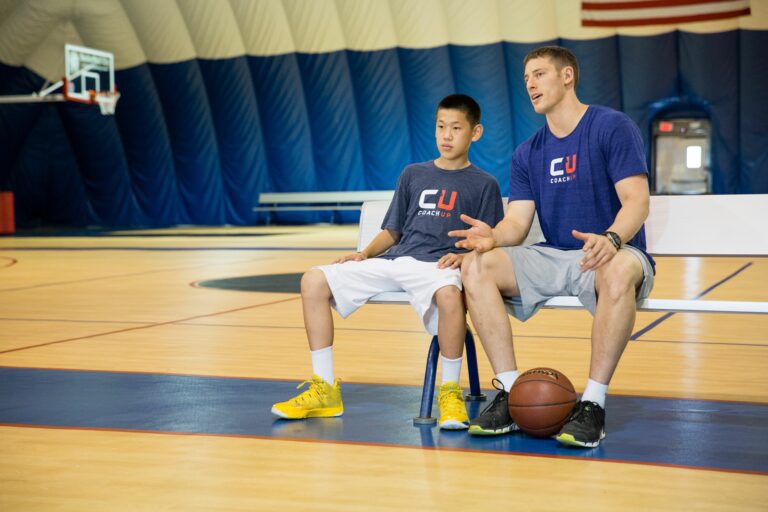Every athlete’s goals should include both individual and team successes. Human nature, however, tends to lead us towards achieving our own interests first. There is nothing in sports that more greatly impacts self-interest than playing time. More specifically, a lack thereof. There are a number of influences on why athletes face limited playing time; from performance and ability, to awareness and reliability. There are a number of positive actions for athletes to take in order to improve upon their experience within the season. But let’s first take a look at a few things you should never do if you’re feeling strapped for playing time.
Key things that athletes should not do when playing time is limited
Act like it doesn’t matter
Caring is cool. Something I have noticed when working with young athletes, especially teenagers, is that many are afraid to commit emotionally to their sport. I think we can all agree that the harder you work for something, the more success you will have. However, we don’t always take that one step further and ask “why is someone willing to work harder?” Oftentimes it is as simple as caring more. If it is more playing time that you seek, showing your coach that you care is a great place to start. Be the first one to the yard, and the last one out of the dugout.
Single out coaching decisions
Never use a specific example of a time when you should’ve been in the game but weren’t. When it comes to playing time, there is a finite amount. Therefore, if there was a game you thought you should have played in, that means you also think one of your teammates should not have played in the game. Calling out these examples shows a lack of trust and respect for your teammates who likely have the same goals as you do. Pulling this move shows a blatant disregard for the success of the team and will likely lead to even less playing time for you.
Get your parents involved
There is nothing wrong with venting your frustrations to someone close to you. However, you will never make a coach happy by sending your parents after them to inquire about your playing time. Coaches want to build relationships with you, understand what makes you tick as an athlete, and speak to you directly about the problems you may have. The best solution to any conflict with your coach is always clear communication. It may be difficult and scary, but it will always be worth it.
Compare your game to the player ahead of you
Comparison is the theft of joy, and you don’t stand to gain anything by measuring yourself against your teammates. If you’re a ground-ball pitcher and the guy ahead of you throws hard and gets hitters to chase high fastballs, don’t try to adopt his game to gain the edge. Every player has their own unique strengths and weaknesses. Honing in on your personal strengths is the best way to find more playing time.
Now, let’s cover a few positive actions that athletes should make in order to improve their playing time.
Four ways for athletes to get more playing time
Become your team’s biggest fan
It is hard to be an athlete who has limited playing time when the team is having success. How can you justify that you should be in and others should be out when your team is doing well!? Whether you are having an impact on the box score or not, you need to embrace your team’s success. Being a bummer in the dugout during high points of the season is only going to keep you there longer. Becoming your team’s biggest fan doesn’t have to be corny, just try to take a step back from your own frustrations and appreciate the winning. Remaining an involved part of the team in any capacity will make the season more fun, and keep you in good spirits for when your opportunity for playing time does arise.
Make it clear you want to play
Every coach and athlete understands and respects the desire to compete. If you didn’t want to be involved in the heat of the moment, you wouldn’t be on the team in the first place. Clarifying to your coach your desire to play is a great way to earn more time on the field. The key is to communicate it in a positive way. Ask your coach what you can do to improve if you are unsure. It is not enough to simply ask for more playing time, you need to prove your ability to work for it as well.
Do the little things
Be the first one to the field for practice and take extra ground balls after practice. Better yet, a great way to help with the inherent selfishness that comes with wanting to play more is to grab a teammate and switch off hitting grounders to each other to maximize the work you are putting in. Making yourself better, showing the coach how much you care, and helping teammates along the way is a recipe for more playing time.
Be patient
Most good things take time and achieving your goals on the field is no exception. However, in order to let those goals materialize, you need to maintain positive relationships with your coaches and teammates in the meantime. My collegiate baseball career appearances and innings are below:
- 2012 – 1 start, 4 appearances, 7.0 IP
- 2013 – 14 appearances, 20.1 IP
- 2014 -15 appearances, 19.2 IP
- 2015 – 9 starts, 13 Appearances, 51.1 IP
I was pretty upset my junior year after not seeing an uptick in playing time despite some solid performances when given the opportunity. I did not let this affect my attitude towards my coaches, or any of my teammates and instead looked inward at what I could improve.
The following season, my teammates rewarded this patience by electing me as team captain, and my coaches put me in the starting rotation. I am confident my mental approach to this situation played just as big of a part in this result as any change in my actual abilities.

With our 100% money-back guarantee and vetted coaches, anyone can achieve their full athletic potential. CoachUp is the safest and easiest way to find a coach for personalized training. Find your perfect coach today and become the athlete you want to be!
How useful was this post?
Click on a star to rate it!
Average rating 4.1 / 5. Vote count: 37
No votes so far! Be the first to rate this post.





4 Responses
I love this, sometimes you need to see and read positive and negative actions you might be doing and not realizing and this also just refreshes your memory. Also as a parent this helps us to better parent our kids.
I am a right fielder who is in a major slump currently. I want to play better to show my coaches what I can do, and to prove to myself and my teammates that I am more than a benchwarmer who always strikes out(I know I can do better). I want to talk to my coaches about everything, but I don’t know what to say. I need to get out in the field. I love softball. It is all I think about every second of everyday. When I struggle all I really want to do is go home and sit in silence. I don’t want to talk to anyone. At this point I will dive for anything to catch the ball. I will take any risks at this point. Softball is my whole life and I can’t loose it. This post really helped me see what I should be doing about everything.
Thank you (sorry for the long text!!)
I don’t know what to do. I’ve tried all of this and more. My coach cannot even give me any advice on what skills I need to improve. She just says that the defense is set and it isn’t good strategy to sub players. That means no matter how hard I work or improve, there is no chance she will let me play. I compare my skills to others and I know I am just as good. I’m not smaller. I don’t have a bad attitude. I’m not selfish. I want to be an asset to the team, and I know I can do that on the field. But the coach is not willing to consider me at all, and will not give me any reasons. What can I do?
Be patient? Seriously? So if I am a better player than teammate X and in the example provided where the one pitcher’s innings actually decreased from his sophomore to junior year, why should you be accepting of that if you truly have put in all the work, done everything that’s been asked of you and you are performing. Now if the people in front of you are better, well yes you have to be patient or transfer, but I would never accept sitting behind an inferior player who I worked harder than and had more ability than but teammate x was a coach favorite. That happens all too often and it’s sickening.